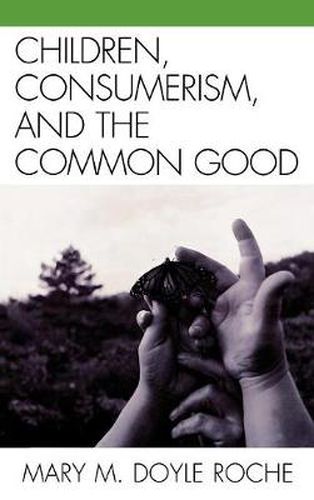Readings Newsletter
Become a Readings Member to make your shopping experience even easier.
Sign in or sign up for free!
You’re not far away from qualifying for FREE standard shipping within Australia
You’ve qualified for FREE standard shipping within Australia
The cart is loading…






Children, Consumerism, and the Common Good explores the impact of consumer culture on the lives of children in the United States and globally, focusing on two phenomena: advertising to children and child labor. Christian communities have a critical role to play in securing the well-being of children and challenging the cultural trends that undermine that well-being. Themes in the tradition of Catholic social teaching can move us beyond the tensions between children’s rights activists and those who propose a return to family values and can inform practices of resistance, participation, and transformation. Roche argues that children are full, interdependent members of the communities of which they are a part. They have a claim on the fruits of our common life and are called to participate in that life according to their age and ability. The principle of the common good forms the benchmark for analyzing children’s participation in the market and the ways in which market logic shapes other institutions of civil society, particularly educational institutions. The Cristo Rey Network of schools is highlighted as an example of institutional transformation which shapes children’s participation in education and the economic life of their families and communities in a spirit of solidarity.
$9.00 standard shipping within Australia
FREE standard shipping within Australia for orders over $100.00
Express & International shipping calculated at checkout
Children, Consumerism, and the Common Good explores the impact of consumer culture on the lives of children in the United States and globally, focusing on two phenomena: advertising to children and child labor. Christian communities have a critical role to play in securing the well-being of children and challenging the cultural trends that undermine that well-being. Themes in the tradition of Catholic social teaching can move us beyond the tensions between children’s rights activists and those who propose a return to family values and can inform practices of resistance, participation, and transformation. Roche argues that children are full, interdependent members of the communities of which they are a part. They have a claim on the fruits of our common life and are called to participate in that life according to their age and ability. The principle of the common good forms the benchmark for analyzing children’s participation in the market and the ways in which market logic shapes other institutions of civil society, particularly educational institutions. The Cristo Rey Network of schools is highlighted as an example of institutional transformation which shapes children’s participation in education and the economic life of their families and communities in a spirit of solidarity.